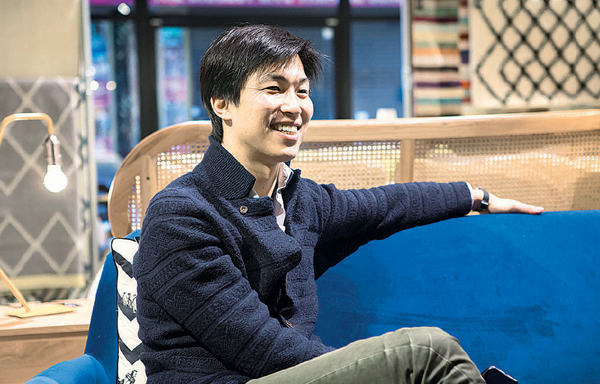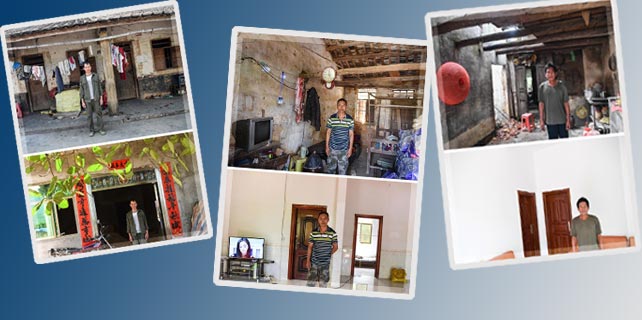Former banker carves out an online furniture empire
 |
|
Li Ning relaxes in his showroom and offices in central London. Provided to CHINA DAILY |
When Li Ning moved to France aged 16 to attend boarding school on a scholarship, he did not speak a word of French.
"I had a Chinese-French dictionary, so I decided to learn it all, from A to Z. I remembered, maybe, only 10 percent of it, but I did eventually learn French."
Li, 34, not only ended up mastering the language but went on to work in banking before becoming an entrepreneur in Paris and then London. He recently announced he will step back as chief executive and take on more of an advisory role at made.com, the online furniture store he helped start seven years ago.
He is thinking about new startup and investment ideas but has no firm plans and may go traveling again, as he did after he sold his first business, another internet furniture company, called MyFab, which he founded in Paris. That time, he traveled in Latin America, Asia, and Africa.
"I love going off to travel," he says.
Li was sent to the French school in the first place because his parents, who are Hakka-speakers from Guangdong province, wanted him to have greater opportunities and France was offering visas and scholarships at a time when the United States and United Kingdom were not.
"My parents are really normal," he says. "My father was in the army before becoming a government clerk, while my mother was a counselor working with the unemployed."
He attended the elite French business school, Ecole des Hautes Etudes Commercials, and then worked for the French arm of the Rothschild investment bank. He says his parents were concerned when he left that job to set up MyFab.
"Banking was useful and formative as my first job. I learned about financial modeling, which was important for me as an entrepreneur," he says. "When I left, my parents thought I was stupid but I was financially independent by then."
He is a classic millennial, the demographic cohort born in the 1980s and 90s, and very much sees his mission as serving "digital natives". In terms of the retail furniture market, he says older people will physically go shopping while younger people will research and buy online and go to the shops perhaps only to check on an item, or for entertainment.
"This behavior will grow and there will be great opportunities for digital brands."
The model followed by made.com involves cutting out the middleman by providing customers with furniture directly from the factory. He met China Daily at the company’s offices in central London, which has a showroom displaying some of the items sold on the website. Customers can view the full range on mobile tablets provided in the showroom.
The company’s supply chain is global, encompassing factories and suppliers in China, India and Europe. The designs are modern, leading many to dub the company an internet Ikea.
Li likes to be involved in the design and sourcing of products.
"My team says I can be pretty hard to work with because I have extreme requirements for detail," he says. "The last 10 percent makes the difference between good and perfect."
The company employs 300 people, has around 100 million pounds ($645 million) in sales, operates across Europe, and is constantly looking for new markets, including China.
"Our company culture is European but the next step is going global. There’s still a lot of opportunity out there because the internet has lowered costs. China is where my heart is and I go often. We employ 40 people in Shanghai."
He also spends a lot of time in Paris and may spend more time there in future, given Britain’s decision to leave the European Union.
"When I was setting up seven years ago, if I had known about Brexit, who knows what I might have done."









